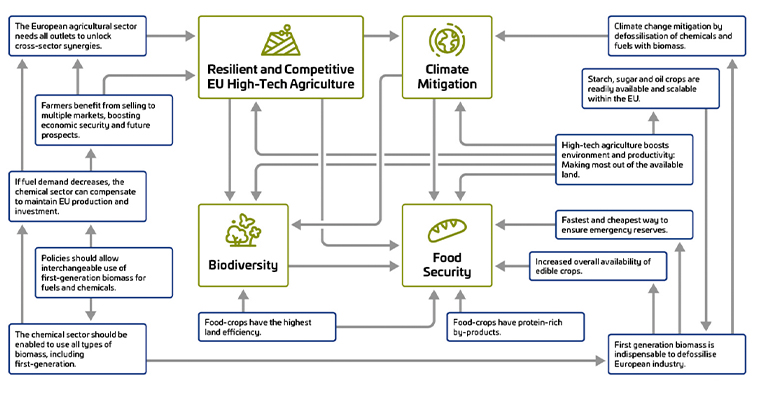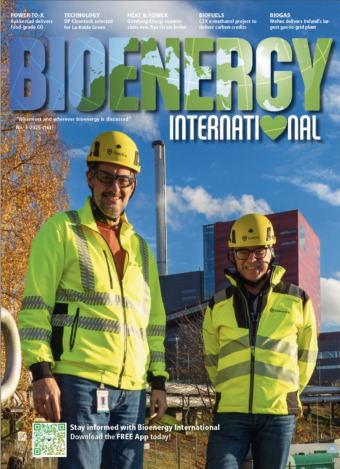Using first-generation agricultural biomass, such as crops like cereals, sugar, and oilseeds, to produce bio-based energy and materials in Europe results in important benefits for food security, biodiversity, agriculture, and climate-change mitigation, according to a new expert paper from the nova-Institut think tank.
Europe’s bioeconomy – which produces renewable, non-fossil-based materials and energy solutions from biomass – is soon to be the focus of a new EU strategy aimed at boosting Europe’s autonomy and competitiveness while reducing its reliance on fossil-based resources.
Commissioned by the European Bioeconomy Alliance (EUBA), a multistakeholder, cross-sector platform dedicated to mainstreaming the bioeconomy and achieving its full potential in Europe, the new nova-Institut study “Benefits of Using First-Generation Biomass for Food, Fuels, Chemicals and Derived Materials in Europe“, confirms that the EU has the biomass resources necessary to realise the strategy, and dispels myths about the use of first-generation agricultural biomass, such as starch, sugar and oilseed crops.
Despite widespread concern and frequent policy pushback against the use of first-generation biomass for industrial applications, often originating from concerns of undermining food security, scientific evidence suggests that these concerns are largely misplaced. The debate is shaped by emotional and political arguments rather than robust data or a comprehensive understanding of the global food system, the report states.
The new research highlights four key benefits to the EU from the use of biomass, including food crops for non-food applications such as fuels, chemicals, and materials:
- Enhancing a resilient and competitive EU agriculture: Selling crops to multiple markets provides farmers with greater flexibility and reduces their vulnerability to price fluctuations in any single sector. It also encourages investment in innovation and sustainable practices, as farmers can diversify their income and adapt to market changes.
- Increased food security: Utilizing first-generation biomass for non-food applications enhances food security in several key ways. This includes improved market stability through delivering protein-rich by-products, providing good availability of food crops, and long-term scalability for starch, sugar, and oil crops in the EU, all while providing an emergency food reserve in times of crisis.
- Supporting climate change mitigation: To defossilize European industry – critical for net-zero targets in chemical and fuel sectors – the use of first-generation biomass is indispensable. Although second-generation biomass is widely accepted, first-generation biomass can usually be produced at a lower cost and scaled up more easily and significantly.
- Supporting biodiversity protection: Food crops are the most efficient use of land for producing starch, sugar, and oilseeds; maximising the productivity of each hectare reduces the total land area required for agriculture, leaving more space for nature and biodiversity protection.
The study also considers the potential impact of shifting only to second-generation sugars (meaning sugar from lignocellulose) instead of using first-generation biomass and finds:
- That, for the same amount of fermentable sugars, the biorefinery would require multiple times the amount of land.
- There would be less protein supply as an important by-product of 1G non-food production.
- The emergency reserve of first-generation crops (starch, sugar, and oilseeds) for food crises would be lost, as, by definition, second-generation crops cannot provide food.
- Even with 1G sugar prices, biorefineries and bio-based chemicals and derived materials can hardly compete with fossil solutions; with 2G sugars being two to three times more expensive, any relevant scaling up for defossilization is impossible.



